Attou Mamat
McGill University
Project Location: Montreal, Canada
Addressing Violence through Dialogue & Artistic Expression
What was the initiative?
Attou’s Pathy initiative (Truth to Empower) was a 13-week arts-based workshop program to support students and educators in a Tioh’tiá:ke (Montreal) high school in preventing and responding to conflict and violence in their lives. Throughout the program, with the help of guest facilitators, participants explored various art forms such as spoken word, visual arts, dance, music, and theatre. This artistic exploration was combined with discussion-based activities to foster reflection and dialogue on topics related to the broader theme of violence – from racism to poverty, from war to homophobia, from climate change to misogyny. The initiative aimed to promote student engagement, social and emotional learning, self-confidence, and agency by creating opportunities for students to share their own knowledge and perspectives. Through collaborative work, the initiative encouraged both students and educators to prioritize care and relationship-building in the classroom and beyond.
What was the community connection?
For her initiative, Attou partnered with Montreal Steppers, a local dance collective with which she had previously collaborated. Over the years, Montreal Steppers has delivered hundreds of workshops to over ten thousand participants in schools and community centers. With its deep-rooted ties to the community, as well as its vast experiential knowledge acquired through past projects, Montreal Steppers provided invaluable support to the initiative throughout its planning and implementation. Additionally, during her time in community, Attou was able to develop new relationships that led to pivotal partnerships for the initiative including teachers, guest facilitators, and consultants.
How was it innovative?
Truth to Empower was innovative as it promoted teaching (and learning) as facilitation rather than training. The initiative did not aim to reach any particular result; instead, it focused on the process. Students were active participants in their education, exercised their agency, shaped the discussions, and had a say in the program’s content and structure. Despite weekly workshops taking place during the required English Language Arts class, participation in the program was optional, which allowed for better engagement by those who attended the workshops. Questions and tangents during class discussions were welcomed as constructive displays of student engagement rather than treated as disruptive interruptions. The project adopted a multidisciplinary approach integrating English, music, theatre, and visual arts to create opportunities for play – for each participant to (re)discover and apply their strengths. Practices like check-ins, group agreements, storytelling, and check-outs allowed us to prioritize relationship-building, as well as social and emotional learning, in the classroom. Ultimately, Truth to Empower approached high school education not as a merely individual experience but rather as a collective endeavour.
During the workshops, students had the opportunity to explore six different art forms (in addition to those they brought themselves via their individual projects): spoken word (poetry), zines, step (dance), jazz (music), (image) theatre, and (watercolour and earth-based) painting. The breadth of art practices introduced in the project was well received by students, who planned to continue newly discovered art forms beyond the classroom, and the classroom teacher, who expressed a desire to continue relationships with guest facilitators brought in through Truth to Empower. Attou’s project contributed to a noticeable shift in classroom dynamics a few weeks into the initiative. The host teacher observed that students became more collaborative and kinder to one another since committing to the group agreements that were co-constructed in the workshops. The facilitative methods employed through Truth to Empower provided more space for students to connect, to be seen, and to be heard in classroom discussions.
On a more personal note, during the Fellowship year, Attou learned to trust herself more as an educator, program leader, and community organizer. She looks forward to putting that newfound self-trust to good use in her upcoming projects.
What is Attou doing now?
In the months following the Fellowship, Attou joined the International Human Rights Training Program hosted by Equitas, a human rights education organization based in Tioh’tiá:ke (Montreal) as an Intern (Coordination Assistant). Following this position, Attou will be attending the École du Barreau to complete her professional training and, hopefully, to pursue her career in Law and become a licensed lawyer in the province of Quebec. Through legal practice, other advocacy work, and/or informal connections, Attou hopes to devote the rest of her life to bringing more justice and more love into the world.


